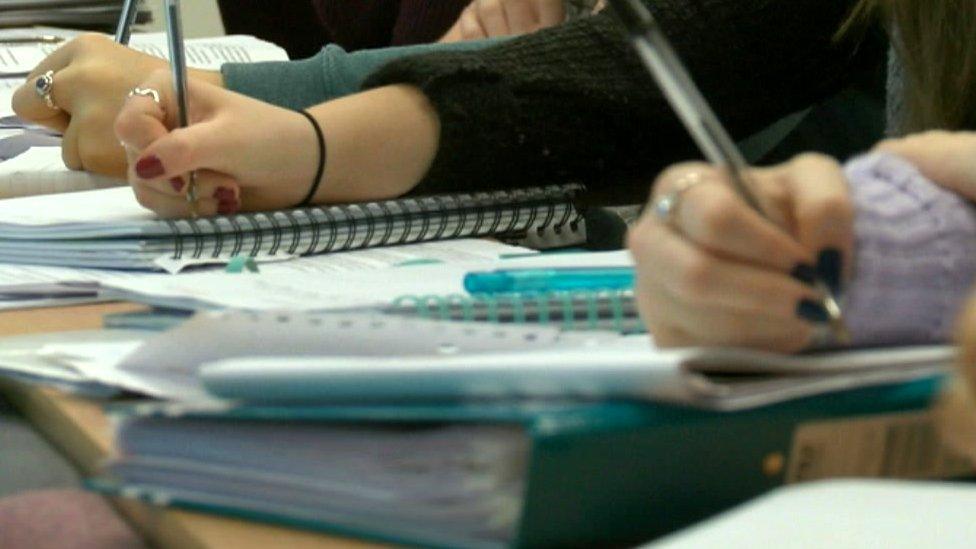Swansea University's 'second-rate' tuition fees risk warning
- Published

There is a risk higher education in Wales will become "second-rate" if there are not changes to tuition fees, Swansea University's head has warned.
It follows plans to raise the fee cap to £9,250 a year from 2017 in England, with increases in line with inflation in subsequent years.
Currently, there are no similar increases planned for Wales.
The Welsh Government said it will consider recommendations of a review, due to report soon. , external
Swansea University's vice chancellor, Prof Richard Davies, told BBC Wales there were "good reasons" for being closely aligned with the way things work in England.
He said, if there were changes which allowed Swansea University to increase fees in line with England, they "would have to do it".
Any decision to raise the level of the maximum tuition fee for Welsh universities would have to be taken by the Welsh Government.

Prof Davies said "it would be of no kindness to students to offer them a cheap and cheerful university" and, with less funding, there was a risk "all the more enthusiastic, ambitious young people go elsewhere".
He insisted Swansea University was determined to avoid that situation and would maintain high standards by finding other ways of generating money.
However, the vice chancellor said alternative sources of income made him "rather sad" because it meant "spending far more of your effort on the overseas market and having fewer Welsh students coming".
Welsh universities will receive less European funding following the result of the EU referendum and international students will have to bridge the funding gap, Prof Davies said.
He added he would be "amazed" if a review headed by Prof Sir Ian Diamond, external into funding in Wales did not recognise the need to allocate more money for maintenance costs to help struggling students.
'Crippling debt'
The Welsh Government currently pays up to £5,190 towards tuition fees for Welsh students in the UK.
But Welsh universities have argued the grants - which totalled £229m in 2014-15 - could be better spent helping poor students, rather than some of the money ending up at colleges in England.
President of NUS Wales, Fflur Elin, said students were already leaving university with "crippling debt", and education at Welsh universities must be accessible.
She said she hoped the Diamond review would also take account of "the whole cost of living", including rent and other costs.
A Welsh Government spokesman said: "As you know, any decision to raise the level of the maximum tuition fee for Welsh universities would have to be taken by Welsh Government.
"The Diamond Review has been commissioned to consider the future of student finance and higher education in Wales. Professor Diamond is due to report in the autumn and we will consider his recommendations once published."
- Published19 April 2016

- Published18 December 2015

- Published9 December 2015

- Published30 November 2015
